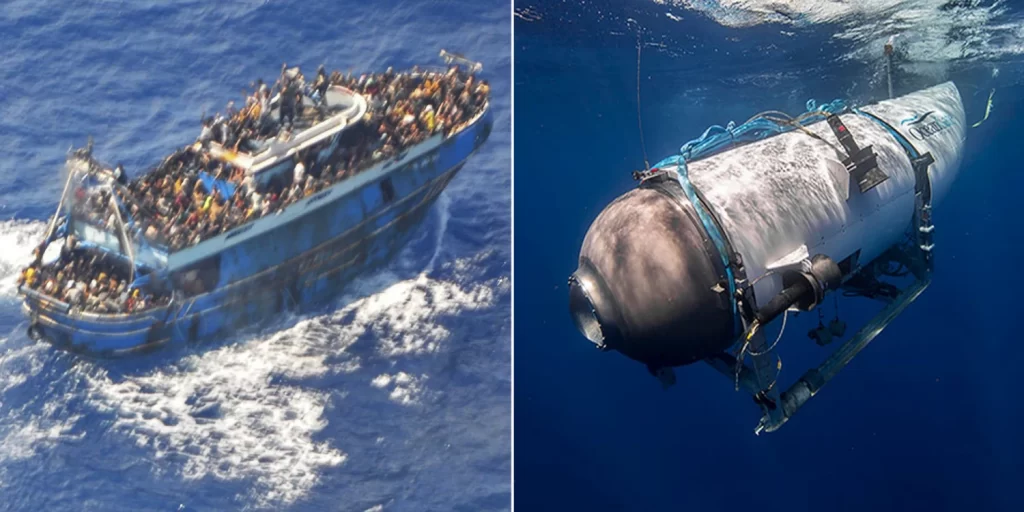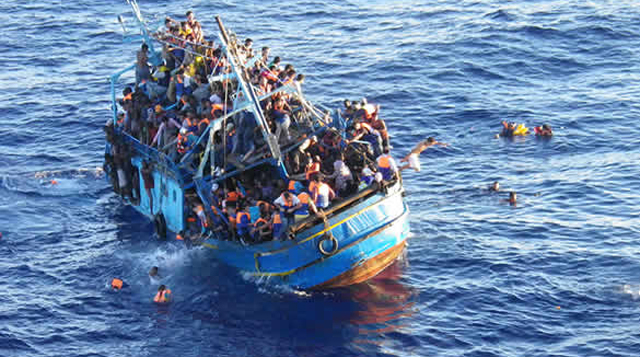In a world that has seemingly become divided by class, where the plight of the marginalised is often overshadowed by the glamour of the wealthy, it is crucial to shed light on the stark contrast between the rescue efforts and media coverage surrounding the Greek refugee boat disaster and the recent Titan Submersible incident. By examining this disparity, we can unravel the deeper issues of societal inequality and inspire a collective call for compassion and unity.

Let’s start with the Greek refugee boat disaster. It’s a heart breaking story, the likes of which go unnoticed far too often. In June of this year, a small boat carrying desperate refugees seeking a better life capsized in the Aegean Sea, claiming the lives of almost 600 innocent souls, at least 100 of whom were children trapped in the hold. These individuals, driven by unimaginable circumstances in their home countries, risked everything for a glimmer of hope. Yet, their plight received minimal media attention and limited rescue efforts.
Why did this happen? Well, the unfortunate truth is that the media tends to be drawn to stories that align with their own narratives or cater to their target audiences. In this case, the refugees’ story was overshadowed by other events deemed more newsworthy. The lack of media coverage further perpetuates the cycle of ignorance and apathy, leaving these vulnerable individuals feeling voiceless and abandoned.

On the other hand, we have the Titan submersible incident. Just a days after the refugee boat tragedy, the world was captivated by the news of a deep-sea exploration vessel that got into trouble. The crew members, predominantly wealthy and privileged individuals, faced a harrowing experience as they became stranded in the depths of the ocean. The media attention was immediate and intense, with live updates, dedicated news segments, and constant speculation about the fate of these individuals.
What drives this stark contrast in coverage and rescue efforts? The answer lies in the underlying class divide that still plagues our society. The refugees, predominantly from low-income backgrounds, lacked the privilege and financial resources to capture the attention of the media and trigger extensive rescue operations. Meanwhile, the Titan incident resonated with the affluent class, garnering substantial attention and resources poured into rescue efforts.
This disparity in media coverage and rescue efforts is a sobering reminder of the class divide that persists in our world. It’s a reminder that the voices and lives of the less fortunate are often overshadowed, while the experiences of the privileged are elevated. It highlights the systemic inequalities that permeate our society, favouring those with privilege and influence.
As a society, we must acknowledge this disparity and actively work towards bridging the gap. It’s crucial to raise awareness about the plights of marginalised communities, such as refugees, and give them the recognition and support they deserve. We need a media that is unbiased, ethical, and responsible, one that highlights stories of all people, regardless of their backgrounds or economic status.
Moreover, it’s high time we examine our own biases and prejudices. Let’s challenge the narratives that perpetuate inequality and amplify the voices of those who are often silenced. By doing so, we can pave the way for a more inclusive and empathetic society, where everyone’s story matters.
In conclusion, the Greek refugee boat disaster and the Titan submersible incident are just two examples that highlight the class divide in rescue efforts and media coverage. It’s a reminder that we still have a long way to go in creating a more equitable society. Let’s join hands and work together to ensure that no voice goes unheard, and no life is deemed unworthy of attention or compassion.
